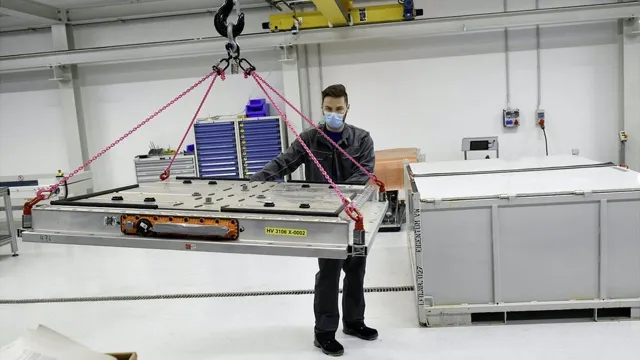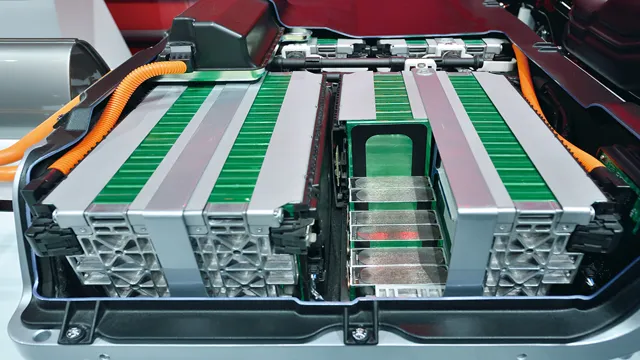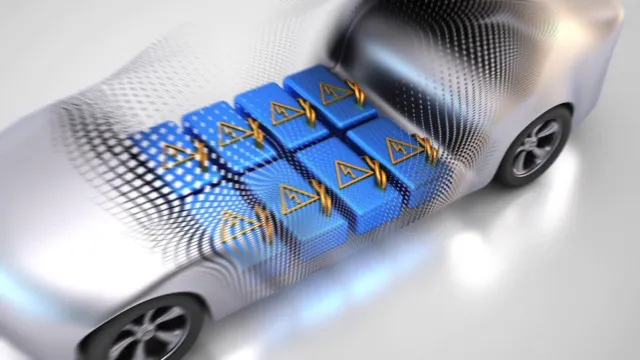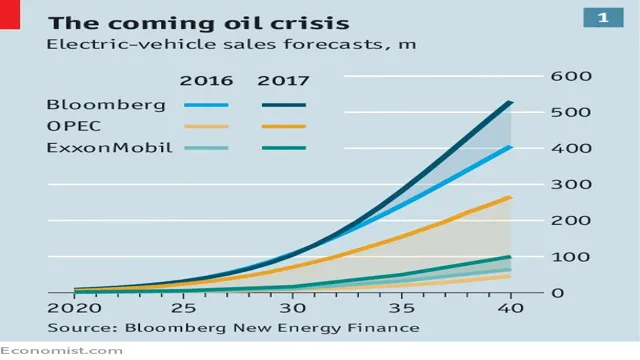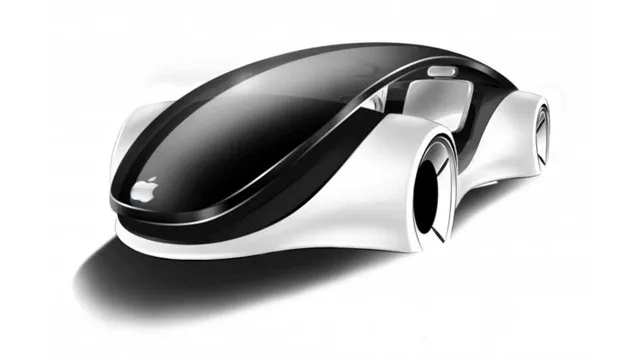Unveiling the Truth: Can Electric Car Batteries Be Fully Recycled?
Electric cars are becoming more and more popular as people try to reduce their carbon footprint and decrease their reliance on fossil fuels. However, as with any new technology, there are concerns about the environmental impact of its production and disposal. One of the biggest concerns with electric cars is what happens to the battery once it’s no longer useful.
Fortunately, electric car battery recycling is a growing industry that aims to address this concern. But what exactly is electric car battery recycling? And how does it work? In short, electric car battery recycling involves taking the old battery and breaking it down into its component parts, such as lithium, nickel, and cobalt. These materials can then be used to make new batteries, reducing the need for new, virgin materials to be mined and processed.
Not only does this benefit the environment by reducing the amount of waste generated by the electric car industry, but it also helps to create a more sustainable supply chain for the materials needed to build new batteries. So while electric car batteries may not last forever, the growth of the electric car battery recycling industry is helping to ensure that they can be reborn and used again and again.
Current State: Limited Recycling
Are electric car batteries fully recyclable? Currently, the answer is no. While lithium-ion batteries are recyclable, the majority of electric car batteries are not being fully recycled due to technical, economic, and regulatory challenges. Additionally, the lack of a centralized recycling system for these batteries means that they are often disposed of improperly, leading to environmental harm.
However, efforts are being made to improve the recycling process and increase the amount of recycling. As the demand for electric cars grows, it is crucial that better end-of-life solutions are developed to ensure that the environmental benefits of these vehicles are not offset by their waste. Companies are starting to take notice and are investing in new technologies for recycling and repurposing used batteries.
As technology improves and recycling processes become more efficient, the hope is that electric car batteries will eventually become fully recyclable, closing the loop on the circular economy.
Overview of Electric Car Battery Recycling Process
The electric car has emerged as an eco-friendly and efficient mode of transportation. However, the battery of an electric car contains thousands of lithium-ion cells that are challenging to recycle effectively. Currently, battery recycling remains limited, with only a few companies worldwide specializing in the process.
The majority of electric car batteries end up in landfills, posing severe environmental risks. The battery recycling process starts with the collection and disassembly of batteries, which are then broken down into their constituent materials. This process requires a significant amount of energy, and the recycled materials may not be of the same quality as the original ones.
Moreover, low recycling rates and a lack of supportive legislation exacerbate the problem, making it challenging to meet the growing demand for electric vehicles. However, countries like China and South Korea have taken significant steps to address this challenge by introducing policies that mandate battery recycling and investing in innovative recycling technologies. Therefore, increasing battery recycling rates is imperative to ensure a sustainable electric vehicle industry.
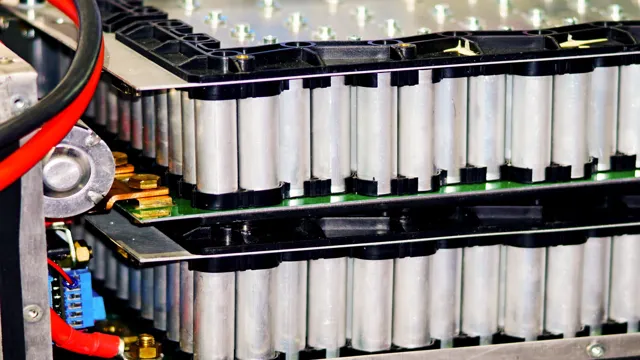
Recyclability of Lithium-ion Batteries
The recyclability of lithium-ion batteries is a growing concern as the demand for electric vehicles and energy storage systems increases. Currently, the recycling process for lithium-ion batteries is limited due to the complexity of the battery’s chemistry and design. The recycling process involves disassembly, crushing, and separation of the different battery components.
However, the high cost of the process and lack of infrastructure for recycling facilities makes it difficult to recycle the batteries efficiently. Additionally, the recycled materials from lithium-ion batteries are not of high quality and cannot be used for all new battery applications. Therefore, research and development efforts are being made to improve the recycling process and find new ways to use recycled materials.
One promising solution is to use the recycled materials to create new energy storage systems for stationary applications like grid storage. The potential for the circular economy of lithium-ion batteries is immense, and with advancements in technology and policy changes, we can achieve a more sustainable future.
Benefits of Electric Car Battery Recycling
Are electric car batteries fully recyclable? Yes, all components of an electric car battery can be recycled. There are several benefits to recycling electric car batteries, including reducing waste, conserving resources, and mitigating environmental and health hazards associated with improper disposal. Recycling also enables economic opportunities, such as the recovery of valuable metals like cobalt, lithium, and nickel, which can be used for new battery production.
Additionally, it creates a closed-loop system where materials are reused rather than wasted, thus reducing the need for extraction and manufacturing of new resources. Promoting and investing in electric car battery recycling is crucial for a sustainable future, where resources are reused and waste is minimized.
Reduction of Environmental Impact
Electric Car Battery Recycling Electric car battery recycling has many benefits, including the reduction of environmental impact. By recycling old batteries, we can prevent hazardous waste from ending up in landfills and causing pollution. Recycling also reduces the need for new resources to be extracted and processed, which is essential for protecting the planet.
In addition, recycling batteries saves energy as it takes less energy to recycle existing materials than to extract new ones. Moreover, recycling batteries helps to conserve materials and extend the life of existing resources. By doing so, we can reduce the overall amount of waste produced and the impact on our environment.
In conclusion, electric car battery recycling is an effective method for reducing waste and preserving resources, making it an essential practice for a sustainable future.
Opportunity for Secondary Use of Materials
Electric Car Battery Recycling Recycling electric car batteries is an emerging opportunity for secondary use of materials. The benefits of recycling such batteries are enormous. Not only does it help save costs of raw materials, but it also protects the environment from harmful chemicals that batteries may leak when not disposed of properly.
Recycling used electric car batteries can also help reduce the demand for new components, which will decrease the need for mining raw materials. Additionally, recycled batteries may be used in other applications like energy storage and grid stabilization. With this process, we can reduce the number of waste from electric vehicles, save resources, and minimize our environmental impact.
In conclusion, electric car battery recycling is not only a sustainable option but also an economically and environmentally beneficial choice.
Economic Advantage for Companies Involved
Electric car battery recycling can offer significant economic advantages for companies involved in the process. For starters, recycling electric car batteries can minimize the need for traditional mining, thereby reducing material costs. The process also creates a new market for recycled materials, which can be sold to manufacturers of new batteries.
Additionally, recycling provides companies with an opportunity to offer value-added services to their customers. For instance, a company that offers a take-back program for used batteries can create customer loyalty and increase repeat business. Moreover, recycling can create employment opportunities, particularly in areas where jobs in the renewable energy sector are scarce.
Overall, companies that invest in electric car battery recycling stand to benefit immensely from the economic advantages that this process offers.
Current Challenges and Limitations
Are electric car batteries fully recyclable? This is a question that continues to perplex many people, and the answer is not as straightforward as one might think. While it is true that electric vehicle batteries are designed to be recyclable, the process is far from perfect, and there are still many challenges and limitations that need to be overcome. For example, one of the biggest hurdles in the recycling process is separating the valuable components such as cobalt, nickel, and lithium from the non-toxic and non-recoverable materials.
This is complicated by the fact that these batteries contain toxic chemicals, and if not handled properly, they can cause severe environmental damage. Additionally, the current recycling infrastructure isn’t equipped to handle the massive volumes of electric car batteries that will need to be recycled in the coming years. So to answer the question, while electric car batteries are designed to be recycled, the technology and infrastructure still have a long way to go before we can say that these batteries are fully recyclable.
Safety Concerns and Proper Disposal Protocols
When it comes to safety concerns and proper disposal protocols, there are definitely some current challenges and limitations to contend with. One of the biggest issues is simply ensuring that people are aware of the hazards associated with certain waste products, such as batteries, electronics, and chemicals. Without this understanding, it can be difficult to know how to properly dispose of these items in a way that won’t harm people or the environment.
Additionally, there are limitations with the disposal options that are available, as some areas may only have limited recycling or hazardous waste facilities. This can make it more difficult for individuals and businesses to follow proper disposal protocols and do their part to protect the planet. Despite these challenges, though, it’s important that we take these issues seriously and make an effort to educate ourselves and others about safe disposal practices.
Whether it’s finding local recycling programs or advocating for more accessible disposal options, there are steps that we can all take to make a positive impact.
Lack of Infrastructure and High Costs
One of the biggest challenges facing the development of modern technology is the lack of infrastructure and high costs. This is particularly true in developing countries where there is a lack of funds to invest in sophisticated technology and critical infrastructure. As we rely more heavily on technology to enhance our quality of life, the importance of infrastructure becomes even more apparent.
The absence of Wi-Fi, 5G networks, and reliable electricity is a significant obstacle to new technological advancements. Furthermore, the prohibitive expenses incurred in purchasing and maintaining the equipment limits the ability of smaller institutions and individuals to access vital technologies. With the significant obstacles associated with insufficient infrastructure and high prices, it is crucial to focus on building the necessary infrastructure and embracing cryptocurrencies like Bitcoin as a way to reduce costs and improve access to opportunities and technology.
Future Outlook and Potential Innovations
When it comes to sustainability, electric cars have paved the way for a greener transportation option. However, a common question that comes up is whether electric car batteries are fully recyclable. The answer isn’t so clear-cut.
While electric car batteries can be recycled, the process isn’t perfect yet and there’s still room for improvement. Currently, most electric car batteries end up being reused for their materials, rather than being fully recycled. Research is being done to improve the recycling process and make it more efficient, but it may still be a while before electric car batteries are completely recyclable.
As electric car usage continues to rise, it’s crucial to ensure that their batteries can be recycled in the most effective and sustainable way possible.
Conclusion
After analyzing the current state of electric car batteries and recycling methods, it seems that we are not quite there yet in achieving full recyclability. While progress is being made, there are still challenges and limitations that need to be addressed. So while electric cars may be more environmentally friendly than traditional gas-powered cars, there is still work to be done to ensure their batteries contribute to a sustainable future.
In the meantime, let’s all do our part to reduce our environmental footprint by choosing greener transportation options whenever possible!”
FAQs
What happens to electric car batteries once they reach the end of their life?
Electric car batteries can be recycled, with many of the components being repurposed for other uses. However, some parts are difficult to recycle, and currently, there is a lack of infrastructure in place to handle large-scale battery recycling.
How much of an electric car battery can be recycled?
Up to 95% of an electric car battery can be recycled, with metals such as nickel, cobalt, and lithium being recovered and reused.
Is battery recycling cost-effective for electric cars?
Currently, the cost of recycling electric car batteries is higher than the value of the materials that are recovered. However, as the demand for battery recycling increases and technology improves, costs are expected to decrease.
What is the environmental impact of not recycling electric car batteries?
If electric car batteries are not properly recycled, the materials can leach into the soil and groundwater, potentially causing harm to the environment and wildlife. Additionally, not recycling batteries leads to the loss of valuable resources and contributes to increased greenhouse gas emissions.
